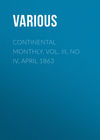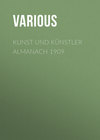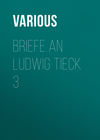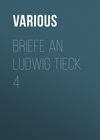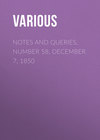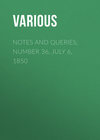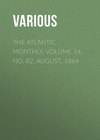Buch lesen: «Continental Monthly, Vol. III, No IV, April 1863», Seite 7
ETHEL.
FITZ FASHION'S WIFE
Take the diamonds from my forehead – their chill weight but frets my brow!
How they glitter! radiant, faultless – but they give no pleasure now.
Once they might have saved a Poet, o'er whose bed the violet waves:
Now their lustre chills my spirit, like the light from new-made graves.
Quick! unbind the braided tresses of my coroneted hair!
Let it fall in single ringlets such as I was wont to wear.
Take that wreath of dewy violets, twine it round their golden flow;
Let the perfumed purple blossoms fall upon my brow of snow!
Simple flowers, ye gently lead me back into the sunny years,
Ere I wore proud chains of diamonds, forged of bitter, frozen tears!
Bring the silver mirror to me! I am changed since those bright days,
When I lived with my sweet mother, and a Poet sang my praise.
My blue eyes are larger, dimmer; thicker lashes veil their light;
Upon my cheek the crimson rose fast is fading to the white.
I am taller, statelier, slighter, than I was in days of yore: —
If his eyes in heaven behold me, does he praise me as before?
Proudly swells the silken rustle – all around is wealth and state, —
Dearer far the early roses twining round the wicker gate,
Where my mother came at evening with the saint-like forehead pale,
And the Poet sat beside her, conning o'er his rhythmed tale.
As he read the linked lines over, she would sanction, disapprove:
Soft and musical the pages, but he never sang of love.
I had lived through sixteen summers, he was only twenty-one,
And we three still sat together at the hour of setting sun.
Lowly was the forest cottage, but the sweetbrier wreathed it well;
'Mid its violets and roses, bees and robins loved to dwell.
Wilder forms of larch and hemlock climbed the mountain at its side;
Fairy-like a rill came leaping where the quivering harebells sighed.
Glittering, bounding, singing, dancing, ferns and mosses loved its track;
Lower in it dipped the willows, as to kiss the cloudland's rack.
Soon there came a stately lover, – praised my beauty, softly smiled:
'He would make my mother happy,' – I was but a silly child!
Came a dream of sudden power – fairest visions o'er me glide —
Wider spheres would open for me; – dazzled, I became a bride:
Fondly deemed my lonely mother would be freed from sordid care;
Splendor I might pour around her, every joy with her might share.
Then the Poet, who had never breathed one word of love to me, —
We might shape his life-course for him, give him culture wide and free.
How I longed to turn the pages, with a husband's hand as guide,
Of the long-past golden ages, art and science at my side!
To my simple fancy seemed it almost everything he knew —
Ah! he might have won affection, faithful, fervent, trusting, true!
I was happy, never dreaming wealth congeals the human soul,
Freezing all its generous impulse – I but saw its wide control.
Years have passed – a larger culture poured strange knowledge through my mind —
I have learned to read man's nature: better I were ever blind!
How can I take upon me what I look upon with scorn,
Or learn to brook my own contempt, or trample the forlorn?
I cannot live by rote and rule; I was not born a slave
To narrow fancies; I must feel, although a husband rave!
I cannot choose my friends because I know them rich, or great;
My heart elects the noble, – what cares love for wealth or state?
Very lovely are my pictures, saints and angels throng my hall —
But with shame my cheek is flushing, and my quivering lashes fall:
Can I gaze on pictured actions, daring deeds, and emprise high,
And not feel my degradation while these fetters round me lie?
Once the Poet came to see me, but it gave me nought but pain;
I was glad to see the Gifted go, ne'er to return again.
For my husband scorning told me: 'True, his lines were very sweet,
But his clothes, so worn and seedy – scarce for me acquaintance meet!
Artists, poets, men of genius, truly should be better paid,
But not holding our position, cannot be our friends,' he said.
'As gentlemen to meet them were a very curious thing;
They were happier in their garrets – there let them sigh or sing.
There were Travers and De Courcy – could he ask them home to dine,
At the risk of meeting truly such strange fellows o'er their wine?'
Then he said, 'My cheeks were peachy, lips were coral, curls were gold,
But he liked them braided crown-like, and with pearls and diamonds rolled.
I was once a little peasant; now I stood a jewelled queen —
Fitter that a calmer presence in his stately wife were seen!'
Then he gave a gorgeous card-case; set with rubies, Roman gold,
Handed me a paper with it, strands of pearls around it rolled;
Names of all his wife should visit I would find upon the roll: —
Found I none I loved within it – not one friend upon the scroll!
And my mother, God forgive me! I was glad to see her go,
Ere the current of her loving heart had turned like mine to snow.
Must I still seem fair and stately, choking down my bosom's strife,
Because 'all deep emotions were unseemly in his wife'?
Must I gasp 'neath diamonds' glitter – walk in lustrous silken sheen —
Leaving those I love in anguish while I play some haughty scene?
I am choking! closer round me crowds convention's stifling vault —
Every meanness's called a virtue – every virtue deemed a fault!
Every generous thought is scandal; every noble deed is crime;
Every feeling's wrapped in fiction, and truth only lives in rhyme!
No; – I am not fashion's minion, – I am not convention's slave!
If 'obedience is for woman,' still she has a soul to save.
Must I share their haughty falsehood, take my part in social guile,
Cut my dearest friends, and stab them with a false, deceitful smile?
Creeping like a serpent through me, faint, I feel a deadly chill,
Freezing all the good within me, icy fetters chain my will.
Do I grow like those around me? will I learn to bear my part
In this glittering world of fashion, taming down a woman's heart?
Must I lower to my husband? is it duty to abate
All the higher instincts in me, till I grow his fitting mate?
Shall I muse on noble pictures, turn the poet's stirring page,
And grow base and mean in action, petty with a petty age?
I am heart-sick, weary, weary! tell me not that this life,
Where all that's truly living must be pruned by fashion's knife! —
I can make my own existence – spurn his gifts, and use my hands,
Though the senseless world of fashion for the deed my memory brands.
Quick! unbraid the heavy tresses of my coroneted hair —
Let its gold fall in free ringlets such as I was wont to wear.
I am going back to nature. I no more will school my heart
To stifle its best feelings, play an idle puppet's part.
I will seek my banished mother, nestle closely on her breast;
Noble, faithful, kind, and loving, there the tortured one may rest.
We will turn the Poets' pages, learn the noblest deeds to act,
Till the fictions in their beauty shall be lived as simple fact.
I will mould a living statue, make it generous, strong, and high,
Humble, meek, self-abnegating, formed to meet the Master's eye.
Oh, the glow of earnest culture! Oh, the joy of sacrifice!
The delight to help another! o'er all selfish thoughts to rise!
Farewell, cold and haughty splendor – how you chilled me when a bride!
Hollow all your mental efforts; meanness all your dazzling pride!
Put the diamonds in their caskets! pearls and rubies, place them there!
I shall never sigh to wear them with the violets in my hair.
Freedom! with no eye upon me freezing all my fiery soul;
Free to follow nature's dictates; free from all save God's control.
I am going to the cottage, with its windows small and low,
Where the sweetbrier twines its roses and the Guelder rose its snow.
I will climb the thymy mountains where the pines in sturdy might
Follow nature's holy bidding, growing ever to the light;
Tracking down the leaping streamlet till the willows on it rise,
Watch its broad and faithful bosom strive to mirror back the skies.
Through the wicker gate at evening with my mother I will come,
With a little book, the Poet's, to read low at set of sun.
'Tis a gloomy, broken record of a love poured forth in death,
Generous, holy, and devoted, sung with panting, dying breath.
By the grassy mound we'll read it where he calmly sleeps in God, —
My gushing tears may stream above – they cannot pierce the sod!
Hand in hand we'll sit together by the lowly mossy grave —
Oh, God! I blazed with jewels, but the noble dared not save!
I am going to the cottage, there to sculpture my own soul,
Till it fill the high ideal of the Poet's glowing roll.
* * *
Stay, lovely dream! I waken! hear the clanking of my chain!
Feel a hopeless vow is on me – I can ne'er be free again!
His wife! I've sworn it truly! I must bear his freezing eye,
Feel his blighting breath upon me while all nobler instincts die!
Feel the Evil gain upon me as the weary moments glide,
Till I hiss, a jewelled serpent, fit companion, at his side.
Vain is struggle – vain is writhing – vain are sobs and stifled gasps —
I must wear my brilliant fetters though my life-blood stain their clasps!
Hark! he calls! tear out the violets! quick! the diamonds in my hair!
There's a ball to-night at Travers' – 'tis his will I should be there.
Splendid victim in his pageant, though my tortured head should ache,
Yet I must be brilliant, joyous, if my throbbing heart should break!
I shudder! quick! my dress of rose, my tunic of point lace —
If fine enough, he will not read the anguish in my face!
I know one place he dare not look – it is so still and deep —
He dare not lift the winding sheet that veils my last, long sleep!
He dreads the dead! the coffin lid will shield me from his breath —
His eye no more will torture – Joy! I shall be free in death!
Free to rest beside the Poet. He will shun the lowly grave:
There my mother soon will join us, and the violets o'er us wave.
THE SKEPTICS OF THE WAVERLEY NOVELS
It is remarkable that while, in a republic, which is the mildest form of government, respect for law and order are most highly developed, there is in an aristocracy (which is always the most deeply based form of tyranny) a constant revolt against all law. Puritanism in England, Pietism in Germany, and Huguenotism in France, were all directly and strongly republican and law-abiding in their social relations; while for an example of the contrary we need only glance at our own South. Aristocracy – a regularly ordered system of society into ranks – is the dream of the slaveholder, and experience is showing us how extremely difficult it is to uproot the power of a very few wicked men who have fairly mudsilled the majority; and yet, despite this strength, there was never yet a country claiming to be civilized, in which the wild caprices and armed outrages of the individual were regarded with such toleration.
Republicanism is Christian. When will the world see this tremendous truth as it should, and realize that as there is a present and a future, so did the Saviour lay down one law whereby man might progress in this life, and another for the attainment of happiness in the next, and that the two are mutually sustaining? There was no real republicanism before the Gospels, and there has been no real addition to the doctrine since. The instant that religion or any great law of truth falls into the hands of a high caste, and puts on its livery, it becomes – ridiculous. What think you of a shepherd's crook of gold blazing with diamonds?
It is interesting to trace an excellent illustration of the natural affinity between the fondness for feudalism and the love of law-breaking in Sir Walter Scott. Whatever his head and his natural common sense dictated (and as he was a canny Scot and a shrewd observer, they dictated many wise truths), his heart was always with the men of bow and brand; with dashing robbers, moss troopers, duellists, wild-eagle barons, wild-wolf borderers, and the whole farrago of autocratic scoundrelism. With his soul devoted to dreams of feudalism, his fond love of its romance was principally based on the constant infractions of law and order to which a state of society must always be subject in which certain men acquire power out of proportion to their integrity. The result of this always is a lurking sympathy with rascality, a secret relish for bold selfishness, which is in every community the deadliest poison of the rights of the poor, and all the disinherited by fortune.
It is very remarkable that Walter Scott, a Tory to the soul, should, by his apparently contradictory yet still most consistent love of the outré, have had a keen amateur sympathy for outlaws. It is much more remarkable, however, that, still retaining his faith in king and nobles, Church and State, he should have pushed his appreciation of such men to the degree of marvellously comprehending – nay, enjoying – certain types of skepticism which sprang up in fiercest opposition to authority; urged into existence by its abuses, as germs of plants have been thought to be electrified into life by sharp blows. And it is most remarkable of all, that he did this at a time when none among his English readers seem to have had any comprehension whatever of these characters, or to have surmised the fact that to merely understand and depict them, the writer must have ventured into fearful depths of reflection and of study. In treating these characters, Walter Scott seems to become positively subjective– and I will venture to say that it is the only instance of the slightest approach to anything of the kind to be found in all his writings. Unlike Byron, who was painfully conscious, not of the nature of his want in this respect, but of something wanting, Scott nowhere else betrays the slightest consciousness of his continual life under limitations, when, plump! we find him making a headlong leap right into the very centre of that terrible pool whose waters feed the forbidden-fruit tree of good and of evil.
The characters to which I particularly refer in Sir Walter Scott's novels are those of the Templar, Brian de Bois Guilbert, in 'Ivanhoe;' of the gypsy Hayraddin Maugrabin in 'Quentin Durward;' of Dryfesdale, the steward, in 'The Abbot;' and of the 'leech' Henbane Dwining, in 'The Fair Maid of Perth.' There are several others which more or less resemble these, as, for instance, Ranald Mac Eagh, the Child of the Mist, in 'Montrose,' and Rashleigh, in 'Rob Roy;' but the latter, considered by themselves, are only partly developed. In fact, if Scott had given to the world only one of these outlaws of faith, there would have been but little ground for inferring that his mind had ever taken so daring a range as I venture to claim for him. It is in his constant, wistful return, in one form or the other, to that terrible type of humanity – the man who, as a matter of intensely sincere faith, has freed himself from all adherence to the laws of man or God – that we find the clue to the real nature of the author's extraordinary sympathy for the most daring, yet most subtle example of the law-breaker. In comparing these characters carefully, we find that each by contrast appears far more perfect than when separate – as the bone, which, however excellent its state of preservation may be, never seems to the eye of the physiologist so complete as when in its place in the complete skeleton. And through this contrast we learn that Scott, having by sympathy and historical-romantic study, comprehended the lost secret of all illuminée mysteries – that of human dependence on nought save the laws of a mysterious and terrible Nature – could not refrain from ever and anon whispering the royal secret, though it were only to the rustling reeds and rushes of fashionable novels. Having learned, though in an illegitimate way, that the friend of Pan, the great king of the golden touch, had ass's ears, he must tell it again, though in murmurs and whispers:
'Qui cum ne prodere visum
Dedecus auderet, cupiens efferre sub auras,
Nec posset reticere tamen, secedit, humumque
Effodit: et domini quales aspexerit aures,
Vox refert parva; terræque immurmurat haustæ.'10
It is to be remarked, in studying collectively these outlaws as set forth by Scott, that while the same characteristic lies at the basis of each, there is very great variety in its development, and that the author seems to have striven to present it in as many widely differing phases as he was capable of doing. When we reflect that Scott himself could not be fairly said to be perfectly at home in more than half a dozen departments of history, and yet that he has taken pains to set forth as many historical varieties of minds absolutely emancipated from all faith, and finally, when we recall that at the time when he wrote, the great proportion of the characteristics of these dramatis personæ were utterly unappreciated, and that by even the learned they were simply reviewed as 'infidels,' we cannot but smile at the care with which (like the sculptor in the old story) he carved his images, and buried them to be dug up at a future day by men who, as he possibly hoped, would appreciate more fully than did his contemporaries his own degree of forbidden knowledge. I certainly do not exaggerate the importance of these characters when speaking in this manner. They could not have been conceived without a very great expenditure of study and of reflection. They are, as I said, subjective, and such portraits of humanity always involve a vastly greater amount of penetrative and long-continued thought, than do the mere historical and social photographs which constitute the bulk of Scott's, as of all novels, and form the favorites of the mass of readers for entertainment.
First among these characters, and most important as indicating direct historical familiarity with the obscure subject of the Oriental heresies of the Middle Ages in Europe, I would place that of the Templar, Brian de Bois Guilbert, who is generally regarded by readers as simply 'a horrid creature,' who chased 'that darling Rebecca' out of the window to the verge of the parapet; or at best as a knightly ruffian, who, like most ruffianly sinners, quieted conscience by stifling it with doubt. Very different, however, did the Templar appear to Scott himself, who, notwithstanding the poetic justice meted to the knight, evidently sympathized in secret more warmly with him than with any other character in the gorgeous company of 'Ivanhoe.' Among them all he is the only one who fully and fairly appreciates the intellect of Rebecca, and, seen from the stand-point of rigid historical probability which Scott would not violate, all allowance being made for what the Templar was, he appears by far the noblest and most intelligent of all the knightly throng. I say that though a favorite, Scott would not to favor him, violate historical probability. Why should he? It formed no part of his plan to give the public of his day lessons in illuminée-ism. Had he done so he would have failed like 'George Sand' in 'Consuelo;' but a very small proportion indeed of whose readers retain a recollection of the doctrines which it is the main object of the book to set forth. I trust there is no slander in the remark, but I must believe it to be true until I see that the majority of the readers of that work have also taken to zealously investigating the sources of that most forbidden lore, which has most certainly this peculiarity, that no one can comprehend it ever so little without experiencing an insatiable, never-resting desire to exhaust it, like everything which is prohibited. There is no such thing as knowing it a little. As one of its sages said of old, its knowledge rushes forth into infinite lands.
It was, I believe, some time before 'Ivanhoe' appeared, that Baron von Hammer Purgstall had published his theory that the Knights Templars were, although most unjustly treated, still guilty, in a certain sense, of the extraordinary charges brought against them. It seems at least to be tolerably certain that during their long residence in the East they had acquired the Oriental secrets of initiation into societies which taught the old serpent-lore of eritis sicut Deus, and positive knowledge; the ultimate secret, being the absolute nothingness of all faith, creeds, laws, ties, or rules to him who is capable of rising above them and of drawing from Nature by an 'enlightened' study of her laws the principles of action, of harmony with fellow men, and of unlimited earthly enjoyment. Such had been for ages the last lessons of all the 'mysteries' of the East – mysteries which it was the peculiar destiny of the Hebrew race to resist through ages of struggle. It was through the teaching of such mysteries of pantheistic naturalism that, as the unflinching Jewish deists and anthropomorphists believed, man fell, and their belief was set forth in their very first religious tradition – the history of the apple, the serpent, and the Fall. And it is to the very extraordinary nature of the Hebrew race, by which they presented for the first time in history the spectacle of a people resisting nature-worship, that they owe their claim to be a peculiar people.
The Templars, under the glowing skies of the East, among its thousand temptations, those of superior knowledge not being the least; in an age when the absurdities of the Roman church were, to an enlightened mind, at their absurdest pitch, fell readily into 'illumination.' Whether they literally worshipped the Oriental Baphomet, a figure with two heads, male and female, girt with a serpent, typifying the completest abnegation of all moral relations, and the rights of knowledge, no one can say now – it is, however, significant that this symbol, which they undoubtedly used, actually found its way under the freemasons into the Christian churches of the West, as a type of 'prudence' among the representations of Christian virtues. When we remember that the Gnostics taught that prudence alone was virtue,11 we have here a coincidence which sufficiently explains the meaning of this emblem of 'the baptism of mind.'
Nothing is more likely than that a portion of the Knights Templars were initiated in the mysteries of such Oriental sects as those of the House of Wisdom of Al Hakem, the seventh and last degree of which at first 'inculcated the vanity of all religion, and the indifference of actions which are neither visited with recompense nor chastisement here or hereafter.' At a later age, when the doctrines of this society had permeated all Islam, it seems to have labored very zealously to teach both women and men gratuitously all learning, and give them the freest use of books. At this time it was in the ninth degree that the initiate 'learnt the grand secret of atheism, and a code of morals, which may be summed up in a few words, as believing nothing and daring everything.'12
Bearing this in mind, Walter Scott may be presumed to have studied with shrewd appreciation the character of the Templars, and to have conjectured with strange wisdom their great ambition, when we find Brian de Bois Guilbert declaring to Rebecca that his Order threatened the thrones of Europe, and hinting at tremendous changes in society – 'hopes more extended than can be viewed from the throne of a monarch.' For it was indeed the hope – it must have been – for the proud and powerful brotherhood of the Temple to extend their secret doctrines over Europe, regenerate society, and overthrow all existing powers, substituting for them its own crude and impossible socialism, and for Christianity the lore of the serpent. How plainly is this expressed in the speech of Bois Guilbert to Rebecca:
'Such a swelling flood is that powerful league. Of this mighty Order I am no mean member, but already one of the Chief Commanders, and may well aspire one day to hold the baton of Grand Master. The poor soldiers of the Temple will not alone place their foot upon the necks of Kings – a hemp-sandall'd monk can do that. Our mailed step shall ascend their throne – our gauntlet shall wrench the sceptre from their gripe. Not the reign of your vainly expected Messiah offers such power to your dispersed tribes as my ambition may aim at. I have sought but a kindred spirit to share it, and I have found such in thee.'
'Sayest thou this to one of my people?' answered Rebecca. 'Bethink thee' —
'Answer me not,' said the Templar, 'by urging the difference of our creeds; within our secret conclaves we hold these nursery tales in derision. Think not we long remain blind to the idiotic folly of our founders, who forswore every delight of life for the pleasures of dying martyrs by hunger, by thirst, and by pestilence, and by the swords of savages, while they vainly strove to defend a barren desert, valuable only in the eyes of superstition. Our Order soon adopted bolder and wider views, and found out a better indemnification for our sacrifices. Our immense possessions in every kingdom of Europe, our high military fame, which brings within our circle the flower of chivalry from every Christian clime – these are dedicated to ends of which our pious founders little dreamed, and which are equally concealed from such weak spirits as embrace our Order on the ancient principles, and whose superstition makes them our passive tools. But I will not further withdraw the veil of our mysteries.'
We may well pause for an instant to wonder what would have been the present state of the now civilized world had this order with its Oriental illuminéeism actually succeeded in undermining feudal society and in overthrowing thrones. That it was jointly dreaded by Church and State appears from the excessive, implacable zeal with which it was broken up by Philip the Fair and Pope Clement the Fifth – a zeal quite inexplicable from the motives of avarice usually attributed to them by the modern freemasonic defenders of the Knights of the Temple. I may well say modern, since in a freemasonic document bearing date 1766, reprinted in a rare work,13 we find the most earnest protest and denial that freemasonry had anything in common with the Templars. But the Order did not die unavenged. It is by no means improbable that the secret heresies which, bearing unmistakable marks of Eastern origin, continually sprang up in Europe, and finally led the way to Huss and the Reformation, were in their origin encouraged by the Templars.
Certain it is that the character of Bois Guilbert as drawn by Scott – his habitual oath 'by earth and sea and sky!' his scorn of 'the doting scruples which fetter our free-born reason,' and his atheistic faith that to die is to be 'dispersed to the elements of which our strange forms are so mystically composed,' are all wonderful indications of insight into a type of mind differing inconceivably from the mere infidel villain of modern novels, and which could never have been attributed to a knight of the superstitious Middle Ages without a strong basis of historical research. Very striking indeed is his fierce love for Rebecca – his intense appreciation of her great courage and firmness, which he at once recognizes as congenial to his own daring, and believes will form for him in her a fit mate. There is a spirit of reality in this which transcends ordinary conceptions of what is called genius. To deem a woman requisite aid in such intellectual labor – for so we may well call the system of the Templars – would at that era have been incomprehensibly absurd to any save the worshippers of the bi-sexed Baphomet and the disciples of the House of Wisdom, with whom the equal culture of the sexes was a leading aim. The extraordinary tact with which Scott has contrived to make Bois Guilbert repulsive to the mass of readers, while at the same time he really – for himself – makes him undergo every sacrifice of which the Templar's nature is consistently capable, is perhaps the most elaborately artistic effort in his works. To have made Bois Guilbert sensible to the laws of love and of chivalry, which in his mystical freedom he despised, to rescue her simply from death, which in his view had no terrors beyond short-lived pain, would not have agreed with his character as Scott very truly understood it. Himself a sacrifice to fate, he was willing that she, whom he regarded as a second self, should also perish. This reserving the true comprehension of a certain character to one's self by a writer is not, I believe, an uncommon thing in romance writing. 'Blifil' was the favorite child of his literary parent, and was (it is to be hoped) seen by him from a stand-point undreamed of by nearly all readers.
Closely allied in the one main point of character to Bois Guilbert, and to a certain degree having his Oriental origin, yet differing in every other detail, we have Hayraddin Maugrabin, the gypsy, in 'Quentin Durward.'
When Walter Scott drew the outlines of this singular subordinate actor in one of the world's greatest mediæval romances, so little was known of the real condition of the 'Rommany,' that the author was supposed to have introduced an exaggerated and most improbable character among historical portraits which were true to life. The more recent researches of George Borrow and others have shown that, judged by the gypsy of the present day, Hayraddin is extremely well drawn in certain particulars, but improbable in other respects. He has, amid all his villany, a certain firmness or greatness which is peculiar to men who can sustain positions of rank – a marked Oriental 'leadership,' which Scott might be presumed to have guessed at. Yet all of this corresponds closely to the historical account of the first of these wanderers, who in 1427 came to Europe, 'well mounted,' and claiming to be men of the highest rank, and to the condition and character of certain men among them in the Slavonian countries of the present day. If we study carefully all that is accessible both of the present and the past relative to this singular race, we shall find that Scott, partly from knowledge and partly by poetic intuition, has in this gypsy produced one of his most marvellous and deeply interesting studies.
Like Bois Guilbert, Hayraddin is a man without a God, and the peculiarity of his character lies in a constant realization of the fact that he is absolutely free from every form or principle of faith, every conventional tie, every duty founded on aught save the most natural instincts. He revels in this freedom; it is to him like magic armor, making him invulnerable to shafts which reach all around him – nay, which render him supremely indifferent to death itself. Whether this extreme of philosophical skepticism and stoicism could be consistently and correctly attributed to a gypsy of the fifteenth century, will be presently considered. Let me first quote those passages in which the character is best set forth. The first is that in which Hayraddin, in reply to the queries of Quentin Durward, asserts that he has no country, is not a Christian, and is altogether lawless:
